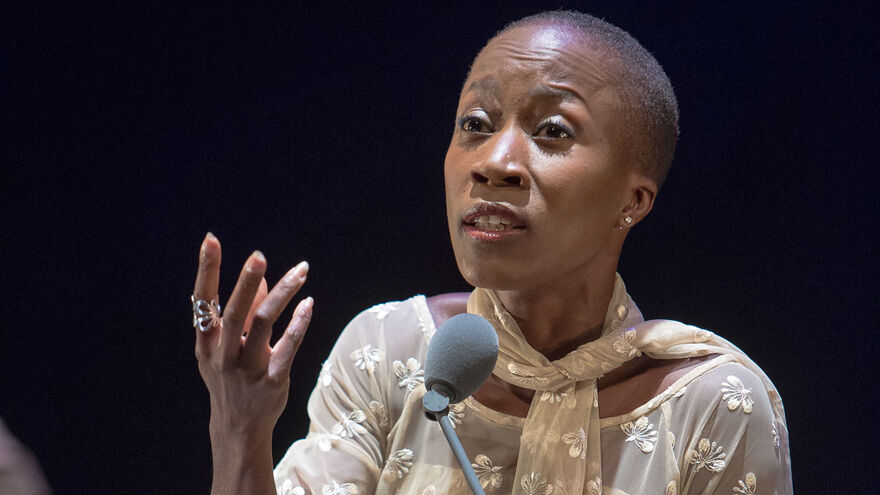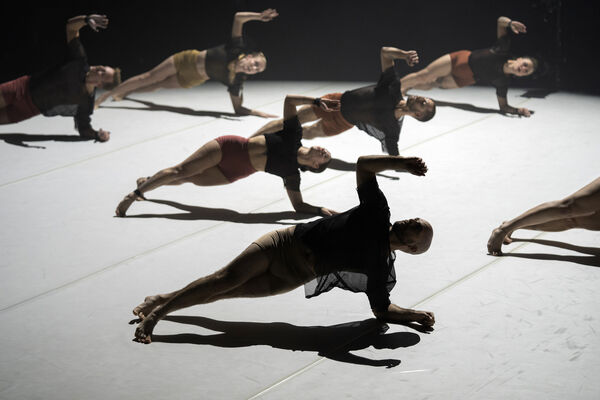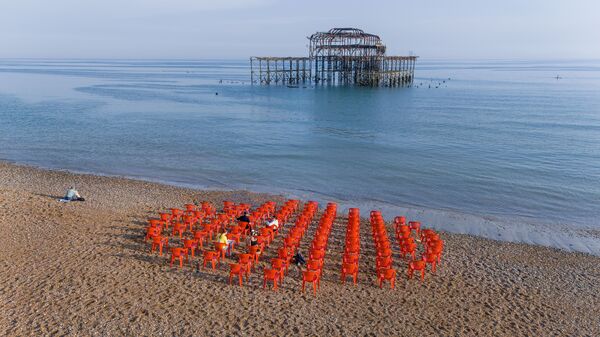
INTERVIEW: Brighton Festival 2019 Guest Director Rokia Traoré
Regarded as one of Africa’s most inventive musicians, Malian singer, songwriter and multi-instrumentalist Rokia Traoré is known for the variety and range of her practice - from her theatre work with Toni Morrison and Peter Sellars to her musical collaborations with Damon Albarn and the Kronos Quartet. We talked to her about being named eleventh Guest Director for Brighton Festival
When you were first approached to be Guest Director for Brighton Festival 2019 what was it that prompted you to say yes?I knew Brighton Festival and how well organised it is and the possibility of being part of the team and exchanging ideas about which artists will be performing and why is an interesting experience for me. It is an opportunity to take the time to look at and to think about other artists’ work. These are circumstances you cannot usually create when you are working as an artist - even when you make collaborations, but programming a festival is another experience - you do it from a different angle. I’m excited, curious and enthusiastic about the journey, and I want to see what it will bring.
What can arts festivals, like Brighton Festival, bring to communities?In Brighton, as with any event like this, the place it happens in is very important and the people occupying this space are very important. What such a festival can bring to its audience is more knowledge about the rest of the world - it’s a way to travel without leaving Brighton and to learn something that you wouldn’t be able to by yourself.
Do you have any aims with Guest Directing this year’s Brighton Festival, and any central themes in mind?
I aim to learn about the way this Festival exists, thanks to the work and the personalities of all the people that make it happen - that’s very important. Being a Guest Director means you are part of a team for a while, so it’s important to know your collaborators and their work and how they see things. I used to programme some things, but there are lots of things to learn from the city and the audience and the Festival itself and it’s going to be very exciting and rich months spent together.
You have described your musical influences as ranging from Ella Fitzgerald, Billie Holiday and Louis Armstrong, to Wagner, Serge Gainsbourg, and the Rolling Stones. How did you develop such broad interests?
My father was a musician and a teacher before becoming a diplomat and his legacy across various art forms and disciplines has had a huge impact on me. My musical and artistic education began with him - I learnt very much with my father about all kinds of things, but not so many of each thing. He grew up in Africa, he lived there, and he had very good knowledge of music in general – he knew a little bit about a lot of things. So I would discover everything with him, from African music to European classical music. Later, meeting people myself and through my work, I could get more experience and discover more about specific kinds of music. Each project is a source of instruction, you learn more and more about possibilities in specific kinds of music - or in artistic skill - so I continue learning and that’s a pleasure.
As the daughter of a diplomat, you travelled a lot growing up and speak (and sing in) several different languages. How has that cross-cultural background affected you and your music? Where do you see home now?
Home is certainly Mali. It has always been my base. When I finished High School I stopped making music and went to University in Brussels (to study Anthropology, Journalism and Music), but then I realised something was missing and that my musical skill was something that I wanted to take advantage of. This was the first time I had disagreed with my father, who felt Africa needed more intellectuals than musicians. He had given up music to provide me with access to this different kind of life. I realised that the life and career that I wanted was only possible in Mali.
Having been exposed to Europe from a young age I have never seen it as ‘superior’, I have always just seen it as an equal place to Mali. I had enough context to understand the way in which Africa is depicted to the world. The value of life should not need to be tied to money. In Africa people may have less money but there is value in finding joy in the everyday. There is a different philosophy, a different way of seeing life in Africa. I want my children to grow up knowing Africa, it’s important that they can decide on who they want to be, understand what it is to be an African person. I am trying to empower young African people to have the confidence to know that they could make it in Africa without travelling to Europe. I felt what I needed to learn was in Mali not in Europe.
For me - making albums, touring etc. alone is not fulfilling – I want my journey to be a shared experience. I see myself as proof that you can ‘make it’ in Africa and feel that it’s my responsibility to share that with young people. Even when living in Europe I have never stopped travelling to Mali.
In 2009 you set up the Foundation Passerelle in support of emerging artists amidst the social crises in Mali. Can you tell us about the project and why it is important to you?
When I started my career, there was no structure for people who wanted to have a career in music in Mali so I wanted to create a way to support people to get involved in the arts. There is no real market there and no real connection with the international art and culture economy. As an artist, I want to try to understand and also try to find solutions, and I think one of the solutions is to have private projects doing what the government doesn’t see the necessity to do because they have so many emergencies to take care of in Africa. For them, when you talk about culture, it’s not something serious. They are trying to find solutions to providing enough food, to providing good health, to providing education so it’s difficult to get them understanding that culture is important - that without culture, there is an important part of education you miss. So I thought my contribution can be a foundation which will find some funding to finance specific projects in Mali and support some venues, some artists, and some promoters who are trying to do things inside art and culture.
Then later, when we started in 2009, I quickly understood that artistic and cultural projects don’t make sense if there are not public spaces for audiences to come and share something and understand and think together. So we started building: buying pieces of land, and building spaces. Now we have a small theatre where we’ve been programming music and different kinds of events during the last ten months, and we have a dance studio for dance lessons and where we also can present some dance projects. We have apartments we are building to be able to have artists in residence and we are trying to find also ideas to make money and to use this money in the construction and realisation of artistic and cultural projects. This is what the Foundation Passerelle is and what we continue trying to be.



